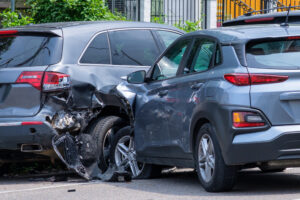Common Types of Personal Injury Cases
People across Chicago and its suburbs deal with accidents every day. Some suffer painful injuries. Others face steep medical bills, lost wages, and emotional distress. These problems often come from someone else’s careless actions.
If that sounds familiar, you’re not alone. Many others deal with the common types of personal injury cases across Cook County and the surrounding areas. Illinois law gives injured people a way to seek compensation. That includes medical costs, lost time at work, and the suffering that follows an injury. A car accident lawyer can help guide you through this process.
But first, it helps to know what kinds of cases the law treats as personal injury matters.
What Counts as a Personal Injury Case in Illinois?
In simple terms, a personal injury case starts when someone is hurt because of another person or company’s careless or reckless behavior. The law calls this negligence. When a person fails to act with reasonable care, and that failure causes harm, the victim can file a claim.
In Illinois, these cases often fall under tort law. The goal is to hold the responsible party accountable and help the injured person recover costs. Personal injury cases in Cook, DuPage, Lake, and Kane counties tend to focus on motor vehicle crashes, slip and fall injuries, dog bites, and other preventable incidents.
Car Accidents
Car accident claims make up many personal injury cases in Chicago and its suburbs. Busy roads like I-90, Route 14, and local streets in Rolling Meadows see frequent crashes.
Injuries can range from broken bones to traumatic brain injuries. Even low-speed collisions can cause long-term problems, especially for the back and neck. These claims often involve medical bills, car repairs, and lost time at work.
Illinois uses a modified comparative fault rule. That means if the injured person is less than 51% responsible for the crash, they can still recover money. But the amount they receive will be reduced by their percentage of fault.
Motorcycle Accidents
Motorcycle crashes are more likely to cause serious injury than car accidents. Riders don’t have seatbelts, airbags, or the steel frame of a vehicle to protect them.
Drivers in cars often claim they didn’t see the motorcycle. But that doesn’t excuse careless driving. When someone fails to yield or turns left in front of a bike, it puts the rider in danger.
Many motorcycle riders need surgery or months of rehab after a crash. The cost of medical care, lost wages, and pain can be significant. Injury claims can help cover those losses.
Pedestrian Accidents
Yes. Pedestrians hit by cars or trucks often have the right to file a claim. This includes people crossing the street at a crosswalk, walking on sidewalks, or moving through parking lots.
Drivers are expected to watch for pedestrians. They can be held responsible when they speed, text, or ignore red lights.
Pedestrian injury cases often involve head injuries, broken legs, and spinal injuries. The law allows victims to seek payment for these injuries and their financial losses.
Rideshare Accidents
Rideshare accidents often involve companies like Uber and Lyft. The laws in Illinois treat these cases differently from regular car crashes. Multiple insurance policies may apply, depending on whether the driver had a passenger or was waiting for a ride request.
If the rideshare app was on and the driver was picking up or carrying a passenger, the company’s commercial insurance might apply. These policies can provide up to $1 million in coverage.
Filing a claim is hard, especially when it’s unclear which policy should pay. Many injured people seek help understanding their rights in these cases.
Dog Bites
Illinois has a law that holds dog owners strictly liable for bites. That means the owner can be held responsible even if the dog had never bitten anyone before.
Dog bite cases often involve children or people visiting someone else’s property.
In Chicago and its suburbs, dog owners must follow leash laws and take steps to control their pets. Bite injuries may require stitches, plastic surgery, or lead to infection. Victims can seek money for medical costs, lost wages, and even scarring or emotional harm.
Truck Accidents
Truck accidents usually involve commercial vehicles, which are subject to federal and state rules. These cases can be more complex because they may involve multiple parties—like the driver, the trucking company, and even a vehicle manufacturer.
In Illinois, crashes on I-290, I-294, and other major routes often involve large trucks. When a truck causes an accident, the results are often severe due to its size and weight.
Claims might include not just driver negligence but also poor maintenance, unsafe loading, or pressure from employers to meet tight deadlines.
What If Someone Dies from Their Injuries?
In tragic cases where a person dies from their injuries, the family may file a wrongful death lawsuit. Illinois law allows the victim’s next of kin—often a spouse, parent, or child—to file this claim.
The law aims to compensate for loss of companionship, financial support, and funeral costs and to hold the at-fault party responsible. Wrongful death claims must be filed within a specific time limit, known as the statute of limitations.
In Illinois, this is generally two years from the date of death. Unfortunately, laws and statutes can change at any time. The only accurate way to tell if you have the right timeframe is to consult a local lawyer with experience in personal injury.
Drunk Driving Accidents
Drunk driving cases may involve both civil and criminal consequences. A driver arrested for DUI may face charges in criminal court. Separately, injured victims can file a personal injury claim in civil court.
These cases often include claims for punitive damages. That’s an extra payment meant to punish the drunk driver and deter future behavior. Under Illinois’s dram shop laws, victims may also sue a bar or restaurant.
If a business served alcohol to someone who was clearly intoxicated, and that person caused an accident, the business might be liable.
Slip and Fall Accidents
Property owners in Illinois are required to maintain safe conditions. You may have a case if you slip on ice, fall due to broken stairs, or trip over an uneven surface.
The law requires showing that the property owner knew or should have known about the hazard.
It also matters whether you were legally on the property, like a store customer or an apartment complex visitor. Slip and fall cases often involve back, hips, or wrists injuries. Victims can seek payment for doctor visits, physical therapy, and time missed from work.
What Types of Brain Injuries Lead to Personal Injury Claims?
Brain injuries can happen in car crashes, falls, or from being struck by an object. These injuries might be mild, like a concussion, or severe, like a traumatic brain injury (TBI).
Symptoms are not always obvious at first. Some people notice memory loss, mood changes, or trouble concentrating days or weeks later. The victim can file a claim if someone else’s actions caused the injury.
Payment can cover medical testing, long-term treatment, and other costs related to the injury.
What If I Got Hurt at a Construction Site?
Construction zones can be dangerous. Falling objects, machinery accidents, and unsafe work conditions cause many injuries each year in Illinois.
You may have a personal injury claim if you were not an employee on the site.
Visitors, contractors, and passersby may be able to seek damages.
These cases can involve multiple companies or property owners. An investigation can help find out who failed to provide a safe environment.
Are product-related injuries considered personal injury cases?
Yes. The manufacturer or seller might be liable if a product caused an injury because it was defective or unsafe.
This includes car parts, power tools, and household goods. Illinois law allows injured consumers to file a product liability claim. To win the case, you must show that the product was used as intended and still caused harm.
Product claims often require expert testimony and detailed evidence. But they play an important role in holding companies accountable.
Who Pays for Personal Injury Damages?
In most cases, the at-fault party’s insurance pays for damages. That might be a car insurance policy, a homeowner’s policy, or a business liability policy.
The injured person can also use their health insurance for treatment while the case progresses. Later, the at-fault party may need to repay those costs.
In cases where insurance won’t pay or isn’t enough, the person or company responsible may be sued directly.
What Should I Do in the Weeks After the Injury?
Taking the right steps in the weeks after an injury can make a big difference in your recovery and any claim you may file.
Here are some important things to keep in mind:
- Prioritize your health. Attend all medical appointments, take medication as prescribed, and follow your doctor’s instructions carefully. It’s vital to stick to your treatment plan for a full recovery.
- Keep a record of your experience. Write down how your injury affects your daily life, such as pain levels, mobility challenges, or missed activities. These notes can help show the impact of your injury.
- Save all related records. Hold onto hospital bills, pharmacy receipts, and documentation of time missed from work. These items provide evidence of your financial losses.
- Take photos. Document your injuries and any property damage by taking clear pictures. These visuals can be a powerful part of your claim.
- Be cautious when speaking to insurance adjusters. Avoid giving statements without preparation. Anything you say could be used to minimize your compensation.
Taking these steps protects your well-being and strengthens your potential claim. Staying organized and focused during this time can help you feel more in control as you move toward recovery.
Can I Recover Damages If My Injury Worsened A Pre-Existing Condition?
Yes. Illinois law allows you to recover damages even if you had a previous condition.
If an accident made your condition worse, that’s something the law takes seriously.
Insurance companies often try to deny claims by blaming an injury on something old.
But the law protects people when a new accident adds to an existing problem. For example, you may have a case if you had back pain from years ago but now can’t work because of a new injury.
You don’t need to be perfectly healthy to file a claim. You only need to show that the recent event made things worse than they were before. Medical records and honest details about your health before and after the injury can help support your case.
Partner with a Dedicated Legal Professional
Dealing with a personal injury can be stressful and confusing. But you don’t have to go through it alone. If you were hurt in Rolling Meadows, Chicago, or nearby suburbs, our personal injury attorney at Vito & Dollenmaier Law is here to help. Call (224) 539-8821 for a free consultation and let our team review your situation with care and attention.


